Share
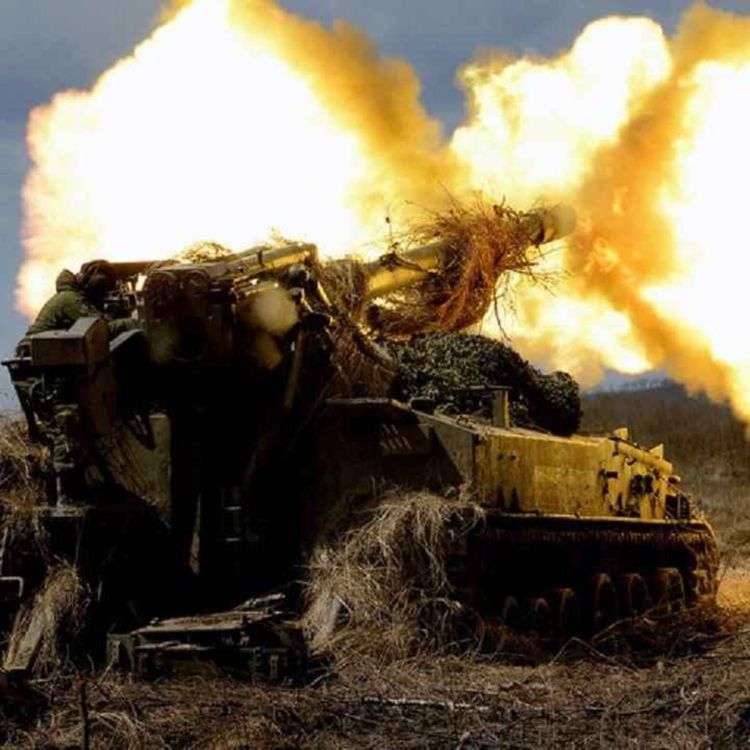
ReConsider
Ukraine X: The Absolutely Dazzling Counter-Blitzkrieg
Time in Kyiv: 9am, Tues, Sep 13th.
Kharkiv Oblast is free.
Zelenksy announced about 6 weeks ago that a major counter-offensive in the South would take place. After a month of attacking bridges, rail depots, ammunition depots, C&C, bases, etc etc etc, the offensive started in earnest. 2 weeks in, they haven’t gotten a ton of territory back.
But, as all of us paying attention know, the Southern offensive may have been the greatest diversion in warfare since WWII itself.
Over the last week, Ukraine launched the most dazzling counter-blitzkrieg I can think of. We’re going to go over all of that in its glorious detail here.
There’s so, so, so much we don’t know. Lots of opsec, lots intentionally hidden from the public. What I can say with certainty is there will be many a movie made about this in Hollywood -- this is one of the great moments in military and geopolitical history, period. It is very, very likely the tide of the war has turned, and for good. David is now on top of Goliath, pummeling him.
Please excuse the sound. I wasn’t planning to record while on break here but I just couldn't help it. I don’t have my mic!
More episodes
View all episodes
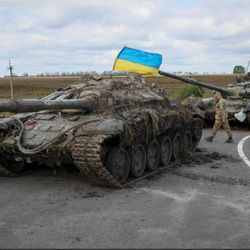
Ukraine XI: Asymmetric Momentum
37:11|There’s something really interesting happening in Ukraine. The few and far between Russian victories seem to be making them weaker. Yes, you read that right. Russian victories are draining the life out of their soldiers, making it harder to win the battles that come next. On the other hand, Ukrainian victories have been swift, dramatic, and devastating - with each win seemingly making them stronger.The big question is, why is it that Ukrainians gain momentum with every win, but Russia can’t seem to build on their victories? Well, it all comes down to asymmetric momentum. And there are 6 major reasons for this. Tune in to hear what these 6 reasons are and how the recent Ukrainian victories mark a critical juncture that will determine the course of the war.Topics Covered Include:00:00 Introduction02:40 What is asymmetric momentum?04:49 Ukrain’s positional warfare06:55 Understanding Ukraine’s offensive and defensive strategies08:16 Russia’s unintelligent retreat10:37 How Russian political interests are affecting their progress14:54 The poor discipline and lack of drive in Russian forces16:42 Is the Russian army competent enough to win this war?18:00 How Russia’s desire for a quick war is slowing their progress20:40 Ukrainian motivation and their willingness to die for the right reasons24:58 The impatient side of Russians uncovered28:30 Many Russian conscripts will die due to lack of training and morale29:36 The psychology behind Putin’s destructive Soviet-style leadership32:04 Ukraine is playing the patient game34:07 Summary35:36 Parting thoughts Ukrainian victories on the ground have been swift, dramatic, and devastating. And each win seems to make them stronger.Russian victories (back when they happened), seemed to be slow and grinding, and wear the Rusisans down, making them weaker.Why is it that Russians lose momentum with each victory, but Ukrainians gain it? Why such asymmetric momentum?I see 6 (or 7, depending) major reasons:1. Russian Politics (“quick war”): impatience -> meat grinder, not admitting defeat, vs Ukraine’s patience2. Russian Politics (show territorial progress): territory vs. Ukraine’s “defeat the enemy” -> meat grinder3. Russian Politics (don’t let Ukraine show territorial progress): no retreat allowed -> break and rout4. Morale, espirit de corps, discipline, "why are we here" vs fighting for home and life -> Ukrainians will die for the right reasons, Russians are drunk, will break and refuse to fight5. Russian atrocities: hardens Ukrainian morale and turns them into 24/7 machines of war who get smarter and become veterans6. Soviet vs. NATO style: NATO style allows for initiative and invests in training; Soviet style mass forces of limited training and centralized command means they are very predictable7. Putin: total centralized control by someone who has clearly lost touch with realityLinks and Resources:Reconsidermedia.comReconsider Media on Twitter - https://twitter.com/reconsidermediaReconsider Media on Facebook - https://www.facebook.com/ReConsiderMedia/
Reconsidering Russia 2: Russia's Interest & What to Expect with Prof. Mitchell Orenstein
01:09:17|Mitchell Orenstein is a professor of Central and East European Politics in the Slavic department at the University of Pennsylvania and an associate of the Davis Center for Russian and Eurasian studies at Harvard. His research focuses on the political economy and international affairs of Central and Eastern Europe.This episode is the latest installment to the four-part series on Reconsidering Russia, where we try to dig into Russia's historical and geopolitical context to help you better understand some of their moves today and what's going on in their country today.Tune in to hear Eric, Xander, and Professor Orenstein dive deep into Russia's real objective in Ukraine, Eastern Vs. Western-leaning periods of Russian leadership, why Russia really needs to diversify its economy, and so much more.00:00 Introduction01:35 Why Geopolitics is not about reforms or democracy03:49 What does Russia really want?05:49 Understanding Russia's national interests and foreign policy preferences12:59 Eastern Vs. Western-leaning periods of Russian leadership16:33 Comparing Russian perceptions to the American interpretation20:10 What does the 'Near Abroad' mean?20:54 The democratization of Russia's 'Near Abroad'24:12 Consequences of the collapse of the Soviet Union28:10 The strategic and fundamental importance of Ukraine32:14 Russian interests in Finland34:57 The Nature of Germany's relationship with Russia39:01 Caucasus as a region of strategic importance to Russia44:15 Chinese and Russian interests in South-East Asia47:15 China-Russia relations: Eternal rivals or emerging alliance 50:41 Russia's views on China's growth in power and influence 52:38 Russia-Japan dispute over Kuril Islands 54:50 Thoughts on Russia's domestic politics and foreign policy58:35 Why Russia really needs to diversify its economy01:01:58 What to expect from Russia in the next 5 to 10 years01:05:18 Russia - a gas station with nuclear weapons01:08:03 Parting thoughts Links and Resources:Reconsidermedia.comMitchel's website - https://www.mitchellorenstein.com/Mitchel's profile on the Foreign Affairs Magazine - https://www.foreignaffairs.com/authors/mitchell-orensteinReconsider Media on Twitter - https://twitter.com/reconsidermediaReconsider Media on Facebook - https://www.facebook.com/ReConsiderMedia/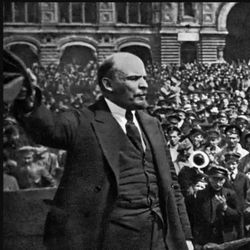
ReConsidering Russia: The Complex History of Russia
01:19:26|Mark Schauss is the host of Russian Rulers History and Battle Ground History. Known for being heavily well-versed with the history of Russia, Mark Schauss joins us in today’s episode to talk about the Russian history in its most authentic form. Mark shares everything from Russia’s first invasion to how all these historic events reflect on how Russia moves socio-politically in today’s world. Join the ReConsider PatreonTopics Covered What made mark start his podcast and how it’s currently going. The history of the first invasion and the second invasion of Russia. The geography of Russia and why it’s easy to invade Russia but why it’s difficult to stay. How Russia was able to balance European powers and how they were able to to set up alliances to protect their borders. Mark shares all about the Napolean and Crimean war.The casualties of the Russian Civil War. The transition period between 1917 to the World War 2. How Russia came back from the 2nd World War as a superpower country. Connect with Mark Russian History on Facebook Resources Mentioned Russian Rulers PodcastRussian Rulers History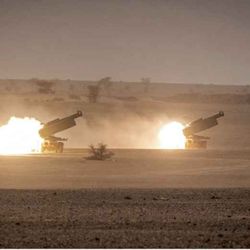
Ukraine IX: Oh HI, MARS
32:24|Hot UpdatesSeverodonetsk fell slowly as expected, but then Lysychansk fell quickly because Russian troops surrounded it, and Ukrainian troops had to retreat rather than be destroyed. It’s possible the Ukrainians were out-gamed by Russian mid-level commanders.So far, Russians have not been able to break out of Donetsk city -- that part of the original Feb 24 defense line is holdingRussia appears to have deployed nearly 100% of its conventional combat capabilities to Ukraine, and is still getting clobbered.https://www.washingtonpost.com/world/2022/06/25/ukraine-russia-balance-of-forces/ Russia is trying to recruit “volunteer” regiments to deploy in Ukraine to relieve Russian troops -- they will be low quality, and so their use would be to hang tight in certain areas and try to pin down Ukrainian units. Not useless, but not super useful.Once again we have returned to slow movement along the front lines now that Severodonetsk and Lysychansk fell. Ukrainians fell back to the 2nd of 3 highly defensible urban areas in Donetsk oblast, with Siversk and Bakhmut the big towns there. Bakhmut is under a lot of pressure; Russians are trying to surround it, but so far to no avail.Russians attempting to attack directly on those two towns, but also continuing to try the end-around from Izium toward Sloviansk to try to create a pocket that can be cut off. So far it’s really not working. It looks like Russia might be deprioritizing that angle as of July 31.WHAT IS HIMARS? WHY DOES IT MATTER?
It Was the Best of Times, It Was the Worst of Times, Part 2
34:46|Lots of ways we can split this. Much has been discussed about decoupling of wages from productivity. Also note we are absolutely not going to get into 2022. But it’s clear the price increases since the pandemic (due to supply shortages, super aggressive monetary policy, gasoline ,and other drivers of inflation) are really eating into real wages.See the full show notes at ReconsiderMedia.comJoin the ReConsider Patreon
It Was the Best of Times, It Was the Worst of Times
31:56|OR, a tale of ups and downsLots of things seem to be getting worse, at least if you read the internet everThis is not an episode to say, “nothing is getting worse,” but that what you hear about is probably not very correlated with what’s going on.I’m leaving abortion out of this because honestly I can’t even deal with this shit right now. Major problem with talking about trends: how long are we talking here? A lot of stuff goes up and down. If you just look at this year and extrapolate, then the stock market trends down, which it obviously doesn’t. So we’ll do our best, I’m focusing on the current adult generation (Millennials/GenX), but keep all that in mind.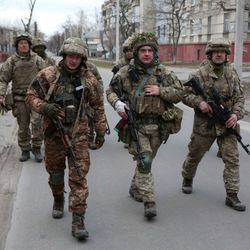
Ukraine VIII: Bold Strategies and High Stakes
37:05|UpdatesSituation in SeverodonetskHUGE numbers of troops from both sidesArtillery war“Road of life” from Bakhmut to Severodonetsk has 1km clearance from Popansa salient and has been a huge fight -- if it goes down, UKR at risk of losing >10k troops in that pocketAmmo situationUkraine out of Soviet ammo; now fully on NATO100% dependent on Western shipments Would have literally run out of ammo without that support -- possible insight into why Russia thought it could win DonbassUKR National Guard troops who are basically there to eat shells and prevent a breakout are losing moraleRussia has blown up the bridge between Severdonetsk and Lysychansk -- this is a major problem for the troops in Severodonetsk, but they could in theory make a river crossing“US General says Elon Musk’s Starlink has totally destroyed Russia’s information campaign” UKR seriously needs more heavy guns -- especially artillery. Losing 100-200 troops/day (to death; likely 500/day to wounds), mostly to artilleryOVERALL:Game’s far from over, as it turns out. Ukraine could totally win, Russia could totally win.My past assessments didn’t take ammo into account. Turns out the Russians just have a ton of old ammo they’re willing to use indiscriminately. Ukrainians are low on it.Ukraine has the will and skill and people to win if it’s supplied.The crazy situation and bold strategy in East DonbassZelensky correctly called that Russia was so obsessed with getting a symbolic victory in completing the “liberation” of the Luhansk oblast, that it would pour everything into urban warfare to pull it off. Putin has his own obsessions, but also has to demonstrate progress on the current stated aims of the war -- liberation of those two provinces. So they’re throwing everything they can at Severodonetsk.Russia is not good at urban warfare. Most assaults, everywhere, are getting repelled (and when that happens, it means Russia lost a lot of troops, stuff). BUT -- and big BUT here -- Ukraine is out of Soviet ammo. Which means a whole shitload of their artillery just went silent. Fully dependent on NATO sending even more, which seems to be a slow thing. And would love to have heavy armor, but NATO is against it. Ukraine has to do an artillery duel with a massive (at least 10:1) disadvantage, trying to use superior intelligence and western radar to precision-target Russian artillery and take it out, bit by bit. Long work, lots of ammo. Need more ammo.
Russia Invades Ukraine VII: Possible Aftermath
33:34|First, war update:Mariupol fell after 2.5 months of truly insane holding out. Gosh dang. 1900 surrendered and there is a POW complication that I”m not going to get intoUkraine has mostly booted Russia out of Kharkiv, though there is still some fighting and the Russians have not given it up entirely the way they did Kyiv/Sumy/etc, so there’s no obvious way to free up those troops for UkraineRussians trying really hard to cross the Siversky Donets river by pontoon, in order to encircle Ukraine’s core defense force in the Donbass (largely around a city called Severodonetsk and one called Lysychansk). It seems at least twice the Ukrainians knocked out entire BTGs trying to make that crossing, which is incredible.https://twitter.com/KyivIndependent/status/1528116469619367940Apparently Russia is generally short of pontoon type equipment…but Russia has a breakout of sorts, actually right in the northern part of the original Donbass battle lines, through a town called Popansa. TONS of troops moving through thereIt’s both a breakout……and a salient, which means significant risk for them. Somewhat exposed.Ukrainians are pretty good at mobile defenseJust not at all clear if they are running in open space (and just taking time to stage properly) or if they are running against really significant resistance at this pointThe original breakthrough at Izium seems to have stalled entirelyRussian troops also massed on the western side of the Siversky Donets (the northern part) to prevent the Ukrainian counter-attack there from threatening the supply lines and etc to Izium -- if that happened it’d be a total disaster(Ukrainians had temporarily broken across the river but had to withdraw)Russian tactics seem to be: just unload with artillery for days and days, then attempt an assaultUsually failBut rinse, lather, repeat, and you get some breakthroughsRussians seem to be planning to do this in the south, north of KhersonRussia may be running out of dronesWill hurt reconDomestic manufacturing capacity limited so they can’t build ‘emThings are moving SLOW, and will continue to do so IF the Popansa breakthrough is containedOK so how does this end?Well here’s where Russia blew it big time.The Ukrainians believe they can win.Russians could have had a settlement where they get Donbass and likely even Crimea as concessions. Now the Ukrainians believe they can win, and want to win.Ukrainians are also just full of morale, manpower, and money.-Zelenskyy says 700k soldiers now fighting for Ukraine -- 3x those of Russia. Can definitely win a war of attrition-Ukraine just got $40B promised from the US, and the G7 promised another $38BRussia on the other hand is having trouble manufacturing new weapons, and is losing tons of money from sanctions and withdrawals -- 45% of its GDP was made up from sales and operations from the companies that left Russia (which doesn’t, I think, mean a 45% GDP contraction, but it means a lot). So there’s just an economic slowdown generally, and a lack of ability to manufacture advanced weapons.Russia depends more and more on tube artillery, so it’s just blasting the Donbass to hell.And for Russia?See the full notes at ReconsiderMedia.com